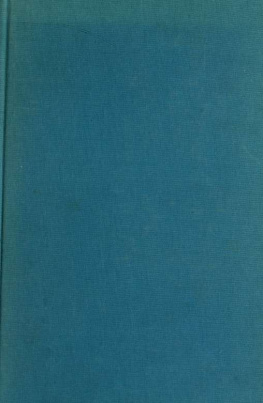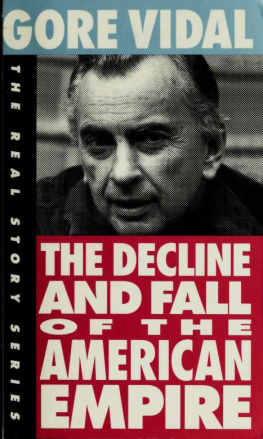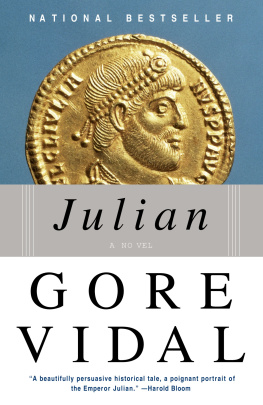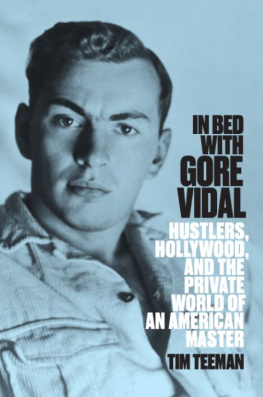FOREWORD
I AM PLEASED that Kyle Longley has come forward with a scholarly presentation highlighting the career of my late father, Albert Gore, Sr. As a son, I continue to miss him in a personal way. And as a citizen, I wish that our nation could hear his voice again right now as we struggle with pressing issues in these perilous times.
My father personified the American dream. He never forgot what it was like to grow up on a hard-scrabble farm in the Appalachian foothills, or what it was like to try to instill in feisty students in a one-room school a desire to learn, or what it was like finally to earn a college degree after holding a variety of jobs during hard economic times. Those experiences made him what he was, and they were experiences he recalled vividly many times as he shared them with my sister and me when we were young.
Many of those who have scrutinized my fathers thirty-two years in Washington have referred to his independence, his courage, his talent, his perseverance, his righteousness, and his idealized sense of public service as a sacred trust. He was a man of honor and incredible dedication. It seems clear to me that we need more men and women in government today who demonstrate similar traits.
One of my fascinations in growing up was listening to my father speak at public functions. On the campaign trail, he was a spirited, colorful orator of the old school. Whether it was on the courthouse lawn in a county seat town or in the United States Senate, his remarksusually with a challenging conclusion but sprinkled with animated humorwere not soon forgotten by those who heard him.
As this biography reveals, many of the important legislative issues that captured my fathers attention coincided with significant events in American history, covering the crucial period leading up to World War II and extending through the cold war and the Vietnam War. Professor Longley admirably digs deeply to explore my fathers stances on important matters both domestically and internationally. A visionary, my father was often ahead of his time with his informed but sometimes immovable positions on legislation. Indeed, he was sometimes stubborn in holding to fixed conclusions about issuesespecially when he felt an important principle was involvedoften to his political detriment. But, in retrospect, history has been kind to him.
My father loved his country and dedicated his adult life to making it better. To borrow an old Tennessee saying, he was something else! Through exhaustive research and clarity of language, Professor Longley has been able to offer readers a keen insight into the fascinating career of Albert Gore, Sr.
AL GORE, JR.
May 2004
PREFACE
IN NOVEMBER 2000, a week after the presidential election, I traveled to Murfreesboro and Middle Tennessee State University on a research trip. The entire country remained transfixed on the Florida recount. In the ensuing debates, one of the perplexing questions asked was why Vice President Al Gore had failed to carry his home state, which would have made the events in Florida irrelevant. As I drove back to Murfreesboro from an interview in Nashville, a car suddenly sped by with a prominent Bush/Cheney bumper sticker. On the back window, written in large characters with shoe polish, was God, Guts, and Guns = Republican Platform.
Though the person driving the car may not have realized it, he had taken the saying from a Ku Klux Klan slogan: God, Guts, and Guns Made America Free. Lets Keep All Three. As I thought about the matter, I recognized a historical continuity. In 1970, Bill Brock defeated Senator Albert Gore Sr. by running a campaign that bore a striking resemblance to George W. Bushs. The Republicans in 2000 had taken Tennessee by attacking Gore on school prayer and abortion, racially sensitive issues of vouchers and gun control, and national defense. In 1970, the Republicans had assailed the elder Gores votes on gun control and school prayer, his opposition to the Vietnam War, and his support of civil rights. The margin of defeat in Tennessee was remarkably similar for the two men. These facts reinforced to me the value of my writing a biography of the elder Gore.
I had not been attracted to the topic until I made a trip to Middle Tennessee State University in 1994 for a job interview. While there, I met Jim Neal, the archivist of Senator Gores papers. Knowing my interest in U.S. foreign relations, he encouraged me to investigate the possibility of writing a biography of Senator Gore. He pointed out that there were several articles, theses, and dissertations about him, but no monographs. I filed the recommendation away because at the time I was finishing a study of the U.S. relationship with Jos Figueres, the Costa Rican nationalist and progressive leader. I took a different job and did not have the opportunity to explore the suggestion immediately.
It would be a couple of more years before I finished my other work, but I kept Dr. Neals suggestion in the back of my mind. I did a little reading and became more interested. Once I dove fully into the subject in late 1997,I came away with a new appreciation of Senator Gore. Beyond his relationship with his son, he was a fascinating character in his own right, and I could not believe the good fortune that no one had written a full-length biography of him.
I am indebted to many people in the long and arduous task of completing this work. First, there is the long list of archivists and personnel at many different sites. In particular, I must thank Jim Neal and his successor Lisa Pruitt, as well as their assistant Betty Rowland, at the Gore Center for their innumerable hours of helping me sift through the thousands of folders and boxes in Senator Gores collection. Many others, including Michael Parrish at the LBJ Library (now at Baylor University), Donald Ritchie in the Senate Historical Office, and David Haight at the Dwight Eisenhower Library, helped me as I gathered information at depositories throughout the country. I must also thank Dr. Parrish and Dr. Ritchie for taking the time to read the manuscript and make insightful comments and recommendations.
There are other scholars who helped shape this manuscript into its final form. They include colleagues Robert Johnson, Randall Woods, Jeff Woods, LeRoy Ashby, Robert Brigham, Walter LaFeber, Jim Siekmeier, Michael Martin, Tony Badger, James Gardner, Elizabeth Cobbs-Hoffman, Dewey Grantham, Hugh Davis Graham, Marshall Eakin, Thomas Schwartz, Patrick Cox, and Nick Sarantakes. My past and current colleagues at Arizona State University including Vicki Ruiz, Brooks Simpson, Ed Escobar, Gayle Gullett, Philip Vandermeer, and Peter Iverson have been particularly supportive and provided numerous insights. I also benefited from the assistance of several graduate students, including Eve Carr, Jaime Ruiz, Richard Kitchen, and Bruce Zachary, each of whom helped with the project at various times. I am especially grateful to my department chair, Noel Stowe, who assisted in finding additional research funds to complete this project.












